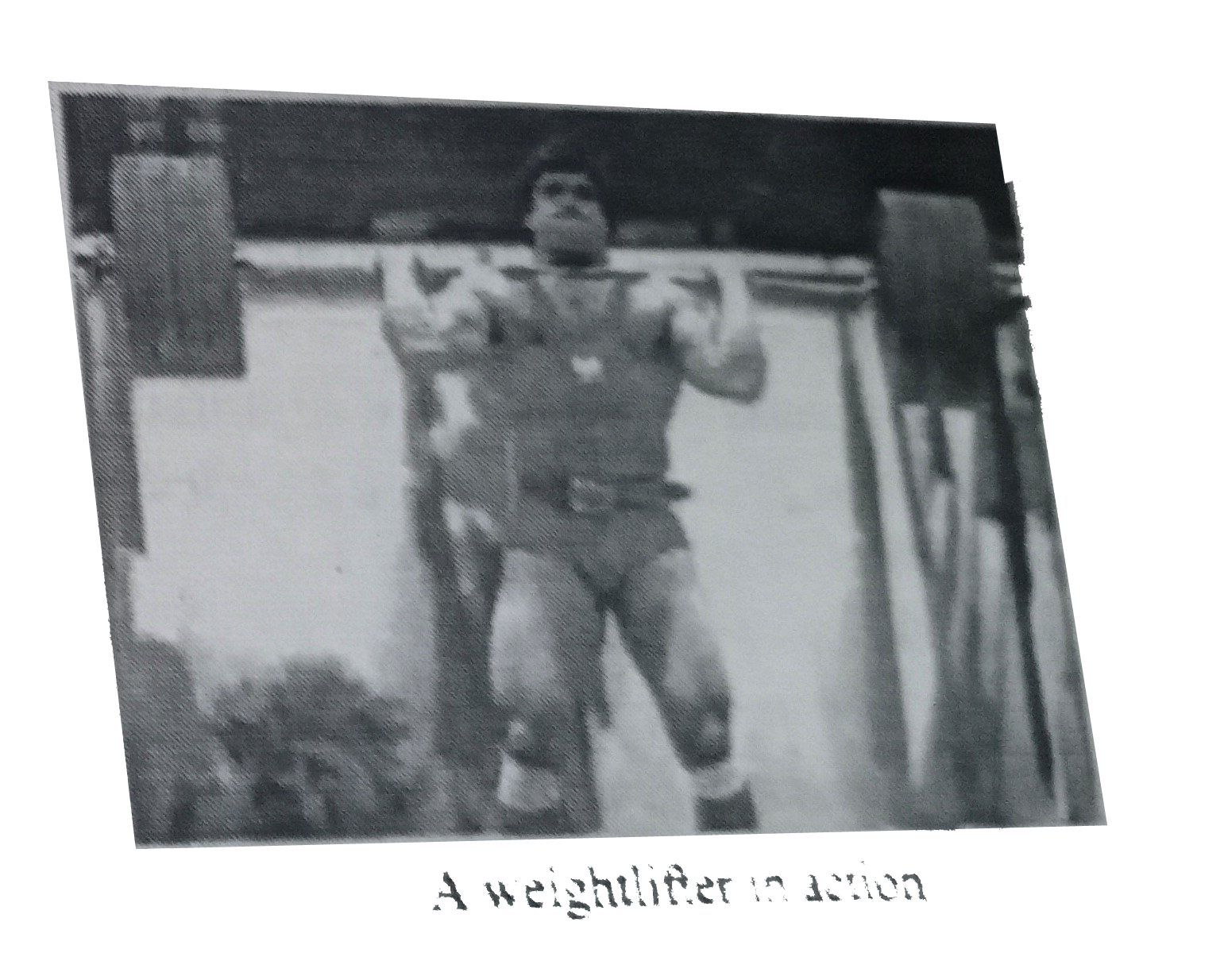A person trying to lose weight by burning fat filts a mass of 10kg upto a being of 1m1000 time . Assume that the potential energy lost each time be lower the mass is dissipated . How much far will be use up considering the work done only when the weight is lifted up ? Far supplies 3.8×107J of energy per kg wich is canverted to mechanical energy with x20% efficiency rate Take =9.8ms−2
2.45×10−3kg
6.45×10−3kg
9.89×10−3kg
12.89×10−3kg
The correct Answer is:D
Here, m=10kg,h=1m,n=1000
Work done in lifting mass =n×mgh
=1000×10×9.8×1 ….(i)
If M is mass of fat burnt, then energy gained
=M×3.8×107×20100 ...(ii)
If there is no loss of energy, then from (i) and (ii)
M×3.8×107×20100=1000×10×9.8
M=9.8×104×53.8×107=12.89×10−3kg
Topper's Solved these Questions
- BOOK - PRADEEPCHAPTER - WORK, ENERGY AND POWEREXERCISE - Comprehension9videos
WORK, ENERGY AND POWER
- BOOK - PRADEEPCHAPTER - WORK, ENERGY AND POWEREXERCISE - Integer Type Questions9videos
WORK, ENERGY AND POWER
- BOOK - PRADEEPCHAPTER - WORK, ENERGY AND POWEREXERCISE - NCERT( Multiple choide questions-1)21videos
WORK, ENERGY AND POWER
- BOOK - PRADEEPCHAPTER - THERMODYNAMICSEXERCISE - Assertion- Reason Type Questions19videos
THERMODYNAMICS
Similar Questions
A person trying to lose weight (dieter ) lifts a 10 kg mass through 0.5m, 1000 times, A ssume that the potential energy lost each time she lowers the mass is dissipated (a) How much work does she does against the gravitational force ? (b) Fat supplies 3.8×107J of energy per kilogram which is converted to mechanical energy with a 20% efficiency rate. How much fat will the dieter use up ?
View SolutionCalculate the work done by a weight of 1 kg mass when it moves up through 1 m
View Solution
Knowledge Check
- Question 1 - Select One
A person trying to lose weight by burning fat lifts a mass of 10 kg upto a height of 1 m 1000 times. Assume that the potential energy lost each time he lowers the mass is dissipated. How much fat will he use up considering the work done only when the weight is lifted up? Fat supplies 3.8x107J of energy per kg which is converted to mechanical energy with a 20% efficiency rate. Take g=9.8ms–2 :
A6.45×10−3kgB9.89×10−3kgC12.89×10−3kgD2.45×10−3kg - Question 2 - Select One
The work done in lifting a mass of 1 kg to a height of 9.8 m is
A1 JB(9.8)2 JC9.8 JDnone of these - Question 3 - Select One
The work done by the weight of a 1-kg mass while it moves up through 1 m is
A9.8 JB−9.8JC19.8JD19.8J
A weightlifter is lifting weights of mass 200 kg up to a height of 2 metres. If g=9.8ms−2, calculate : (a) potential energy acquired by the weights.
(b) work done by the weightlifter.
 View Solution
View SolutionThe work done by a person in carrying a box of mass 10 kg through a vertical height of 10 m is 4900 J. The mass of the person is -
View SolutionFind the increase in mass of water when 1.0kg of water absorbs 4.2×103 J of energy to produce a temperature rise of 1K.
View SolutionThe weight of a body of mass 3 kg at a height of 12.8×106 m from the surface of the Earth is ______.
View SolutionAn object has a potential energy of 400 J with a mass of 20 kg and gravity of 10 N kg−1. The height of the object is:
View Solution

